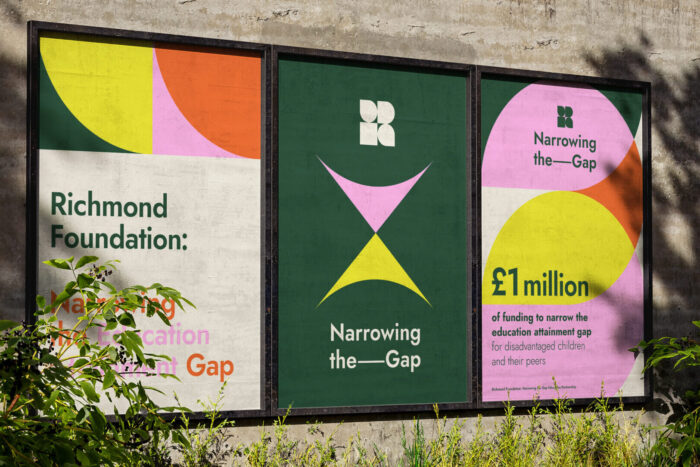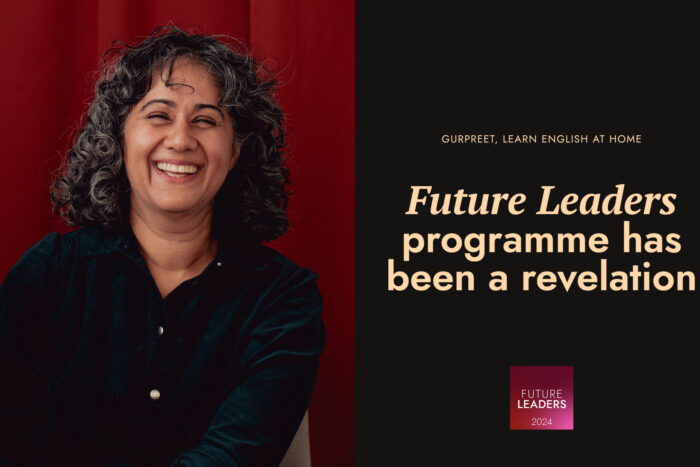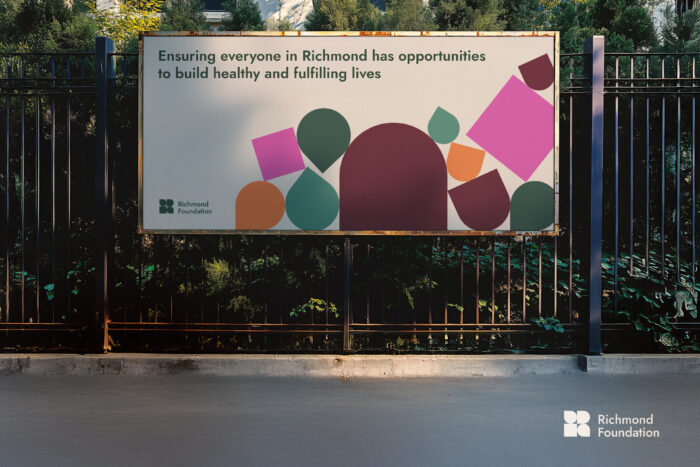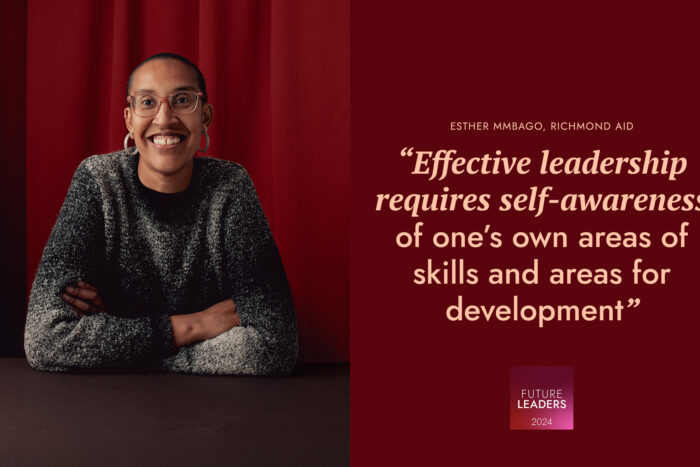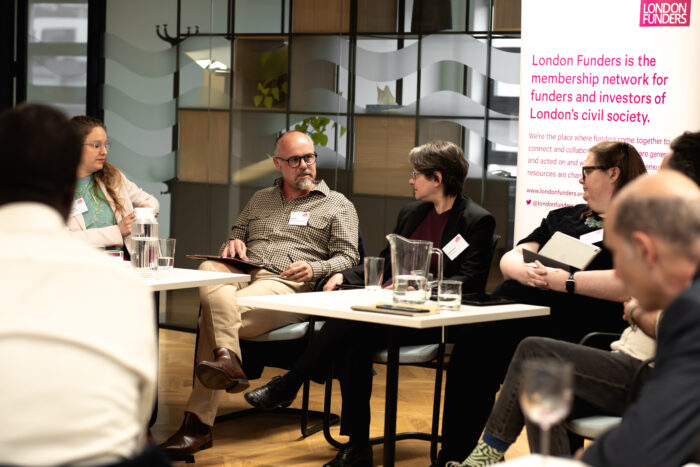Part Two of an exciting series exploring the key challenges shaping the work of the future for the voluntary and community sector.
Our Future Leaders share their insights into the positive trends shaping the sector and the leaders who have inspired their journey.
Missed Part One on Effective Leadership? Catch up now and explore more about the Future Leaders programme on our dedicated page.
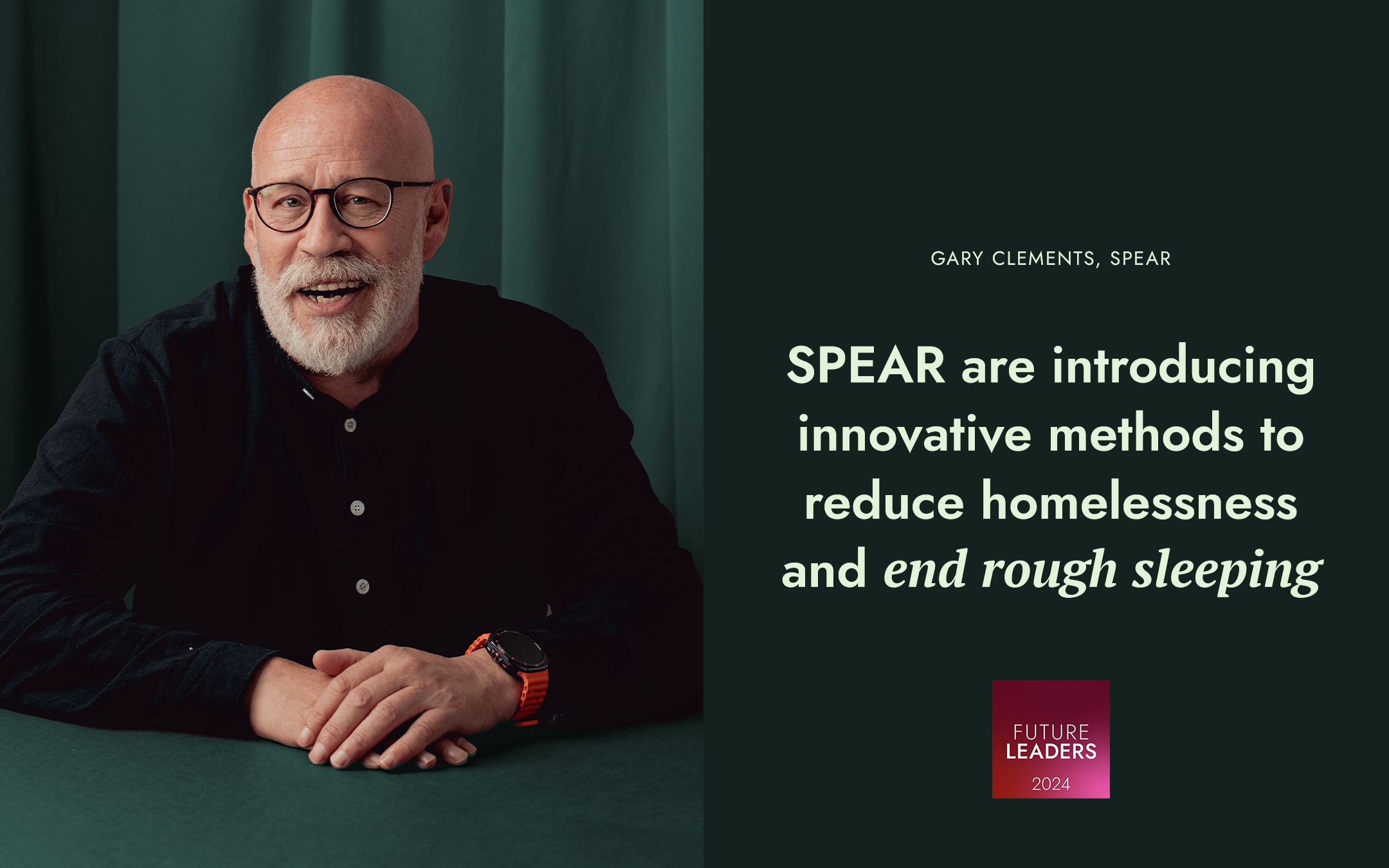
Gary Clements, SPEAR.
Which leader or organisation outside of the London Borough of Richmond upon Thames has significantly influenced or inspired your approach to work, and why?
Jeremy Swain, my CEO during my tenure at Thames Reach Homeless Charity, significantly influenced and inspired my approach to work.
Jeremy was genuinely invested in the dynamics he observed. He prioritised discussing the realities of front-line work over idealised narratives. His interest lay in understanding the factors that drive authentic change and devising strategies to overcome the barriers that perpetuate homelessness.
He demonstrated exemplary leadership by actively listening, asking insightful questions, and providing a model of what true leadership entails.
What positive trends or developments are you observing in your sector, and how is your organisation planning to address these in the coming year?
In our sector, there are positive developments as SPEAR collaborates with the Centre for Homelessness Impact and CGL, with the addition of a new Outreach Health Nurse embedded within our Kingston Outreach Team. This initiative is introducing innovative methods to reduce homelessness and end rough sleeping, while rigorously testing their impact through a series of trials and evaluations.
This project also involves mapping the homelessness and rough sleeping system through a randomised controlled trial, aimed at assessing the impact of having a nurse in an outreach team and whether it improves housing and health outcomes. While the concept of nurses working within outreach teams is not new, this will be the first time such an intervention is subject to a ‘gold standard’ evaluation by the trials team at Cardiff University.
SPEAR plans to address this project over the next year in partnership with others, with the goal of permanently embedding a nurse within outreach teams.
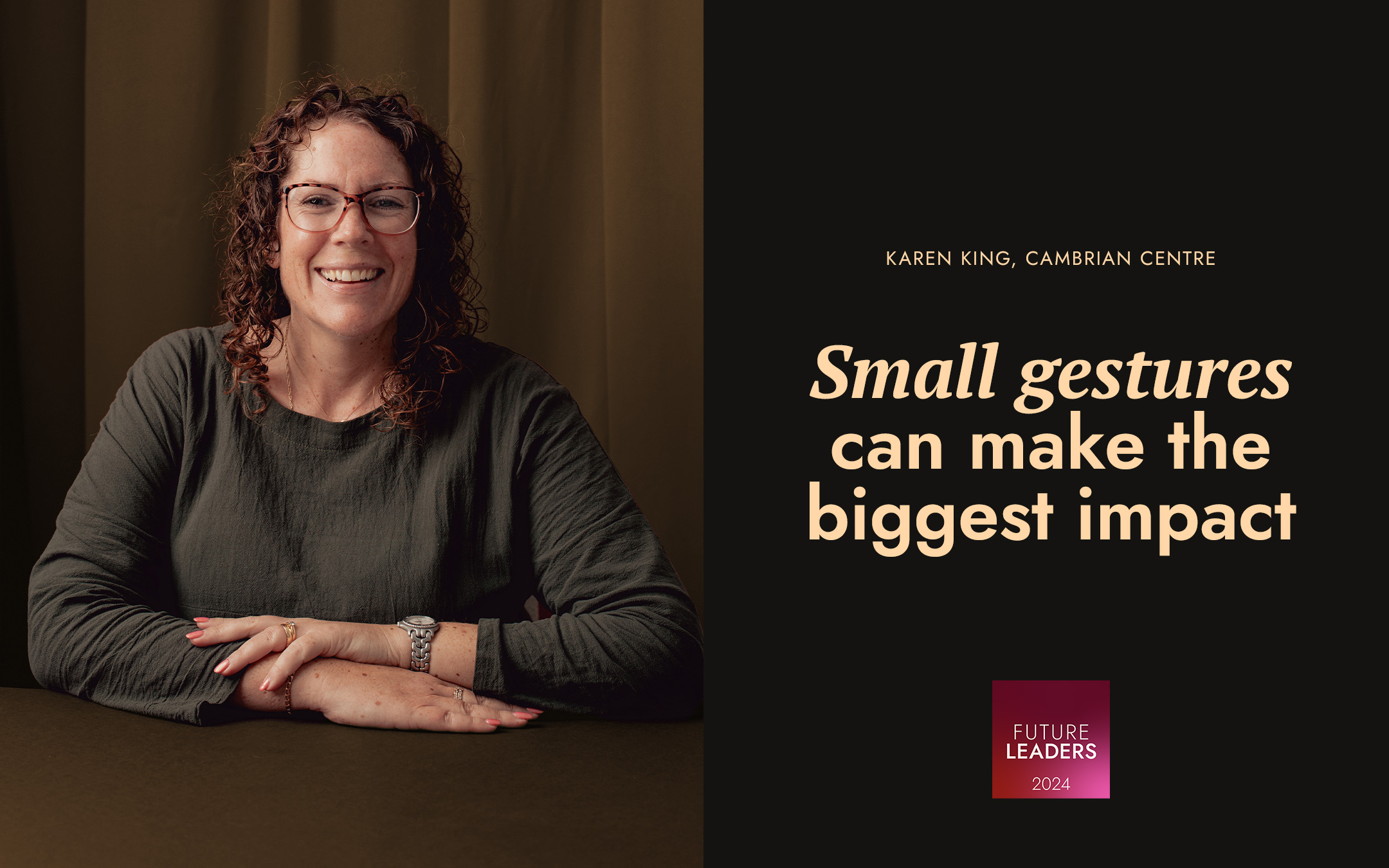
Karen King, Cambrian Centre.
Which leader or organisation outside of the London Borough of Richmond upon Thames has significantly influenced or inspired your approach to work, and why?
My very first employed position in the voluntary sector after graduating from university was with Hounslow Volunteer Bureau, as it was in the early 2000s. Run by Jose Penrose and her strong team of women, she was a pioneer in providing support to her team, coaching to improve skills, and forging the organisation forward through sector and funding changes. Jose must have seen something in me, as she employed me to create, run, and deliver the volunteer support project.
During my time at the bureau, the team helped me develop as a team player, working within the sector to build relationships, networks, and trust to help support volunteers in participating in their local communities. These experiences have been such a source of skills and knowledge that I can draw on today. The work ethic of the women I worked with, Chris, Taz, and Jose, illustrated that women can be the pinnacle of community life, going out of their way to improve the lives of volunteers, the staff team, and the community we served.
It was Jose who introduced me to Neuro-Linguistic Programming (NLP) way back then, having me participate in the work she was doing outside her CEO role to support my personal development. Jose inspired me to continue seeking opportunities for growth and to strive to develop and maintain great working relationships with colleagues, funders, volunteers, supporters, stakeholders, and clients.
Getting these fundamental relationships right can help you achieve many things for yourself and your organisation. I pride myself on working well with people. The voluntary sector needs a wide diversity of life experiences to draw on. Sometimes small gestures can make the biggest impact.
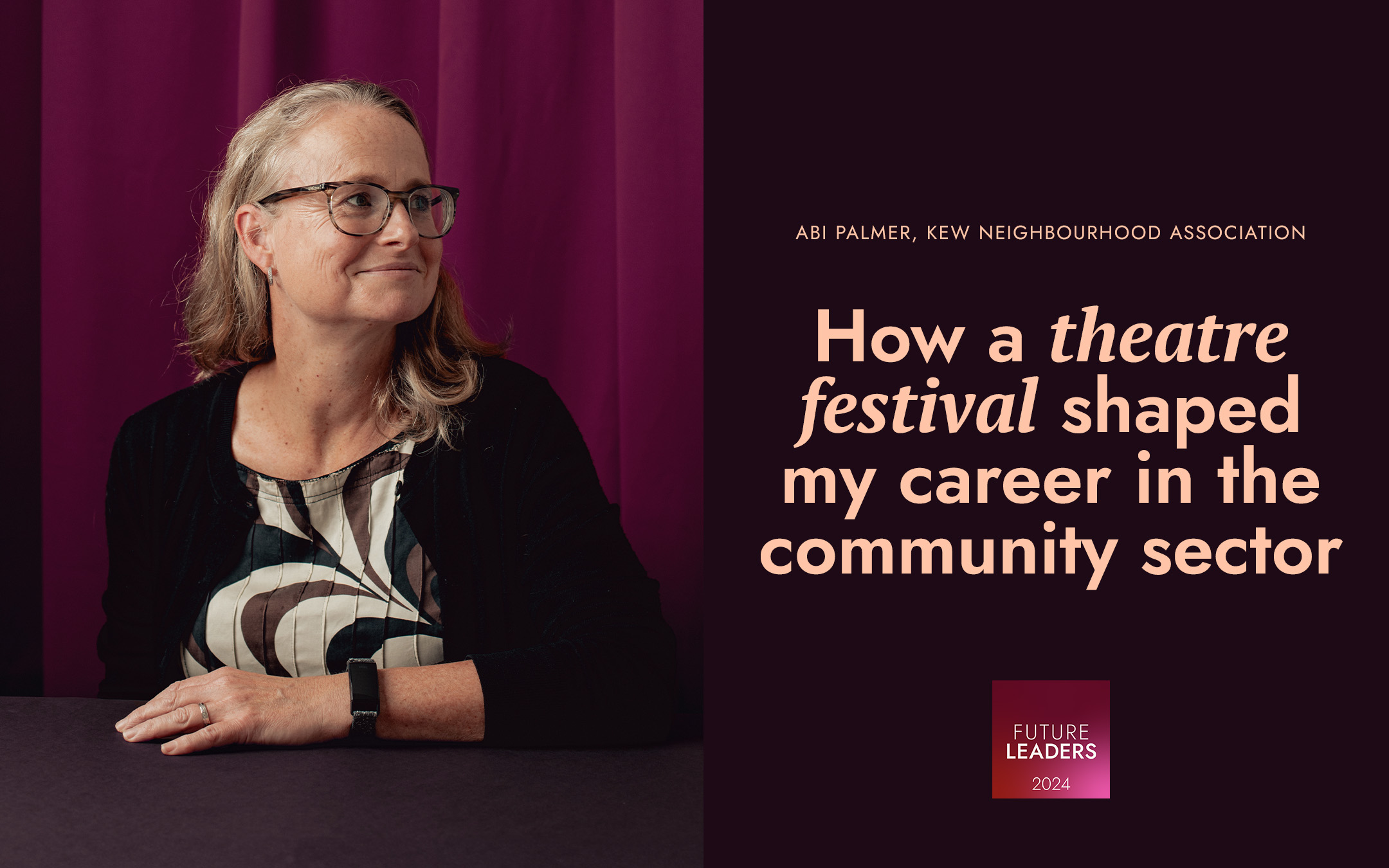
Abi Palmer, Kew Neighbourhood Association.
Which leader or organisation outside of the London Borough of Richmond upon Thames has significantly influenced or inspired your approach to work, and why?
What a great question. It’s made me reflect and recognise that two young, female founding directors of the London International Festival of Theatre (LIFT), Lucy Neal and Rose Fenton, marked the tangible start of my passion for working within community and education settings. They were adventurous programmers and incredibly generous and trusting of their volunteers.
Running up to the summer of 1989, when I was 17 living in the Surrey countryside, I asked a London friend what exciting happenings were taking place in London theatre that I might get involved in. Their suggestion led me to work as a volunteer for LIFT, a festival that took place every two years. I was so inspired by LIFT’s founders, staff and programme that I went back aged 19 and 21. I gained more responsibility and experience each time. It’s thanks to LIFT I chose Arts Administration as my undergraduate degree. In my first year I was a volunteer festival runner. In my second, I co-ordinated the volunteer cohort. And in my final year I supported the Community and Education Manager. Each year I travelled all over London, day and night, experiencing the exciting, international indoor and outdoor theatre that Lucy and Rose brought to London. From Russian classics 1 to site specific, pyrotechnic rich performances that included mass community engagement 2.
Lucy and Rose not only programmed visually and physically dynamic, highly professional theatre companies from around the world, but they rooted many of the productions into the very heart of London’s communities. I went on to become a founder of a festival and lead arts development programmes that have always been rooted in community, neighbourhoods and education. Whilst the charity I work for now doesn’t use art as it’s driver, I continue to be inspired by Lucy and Rose’s commitment to immersing themselves within and adding value to the communities they were engaged in, as well as the trust and value they placed on volunteers.
1 Anatoli Vasiliev and Company, ‘Six Characters in Search of an Author’ at Brixton Academy
2 Welfare State International, ‘Lord Dynamite’ at Three Mills Centre, Bow Creek, July 1991
What positive trends or developments are you observing in your sector, and how is your organisation planning to address these in the coming year?
Wellbeing and practical advice on how we can all take small actions to improve and maintain our mental health are everywhere.
I lead a charity where 100% of the services are delivered by volunteers. I am delighted every time I hear the unequivocal scientific evidence of longitudinal studies of the benefits of volunteering on long term health. Findings include that social engagement is as important as nutrition and exercise. 1 That being part of something larger than yourself can have a profound positive impact on people’s perspectives of their own lives and communities.2
An element of my current work is to address loneliness and isolation. I make a conscious effort to inform and celebrate with our volunteers, that their time and kindness not only helps the people they support, but is a wonderful virtuous circle. I try hard to ensure our volunteering opportunities are truly flexible and fulfilling for our volunteers. I aim to ensure they feel recognised, valued and all the better for giving their time to our grateful, diverse and interesting cohort of beneficiaries.
Richmond’s Joint Strategic Needs Assessment in 2024 3 set out that ‘16.8% (n=33,933) of Richmond’s population were 65 years old and over and that this proportion in the borough is 36.1% higher than the London average of 12.3%.’
The charity I work for needs to continue to encourage people of all ages to volunteer, so the older stay physically and mentally active and engaged. And, importantly, younger volunteers understand the real benefits volunteering to support older people can have on their own wellbeing. Following recent Volunteer Focus Groups I lead, I am working on ramping up our team’s efforts to provide more social opportunities for our volunteers this year, so our volunteers not only benefit from their volunteering but also have more opportunities to get to know their fellow volunteers. I am also interested in exploring how to identify and work with local high net worth individuals who may recognise the need to find more meaning in their lives, who are cash rich but time poor.
One of the key issues my organisation is trying to address is how can the charity and those individuals find a way to work together that brings benefits to them as individuals whilst helping them connect at a deeper level with their communities. We will work on messaging that makes explicit the benefits to themselves personally in gaining a fulfilling sense of belonging that in turn will also help the local community, as well as ensure the financial longevity of a charity that links volunteers with people who benefit from support.
1 Healthy aging: The surprising power of your social life
2 10 Keys to Happier Living, Meaning – Action for Happiness
3 JSNA Age Well – Demography, 8 July 2024
Stay tuned for more valuable insights from our Future Leaders!


